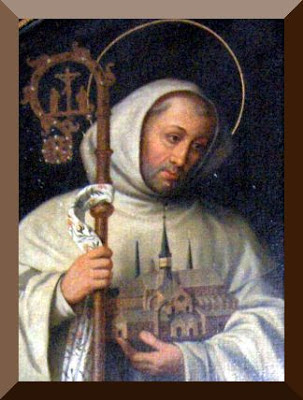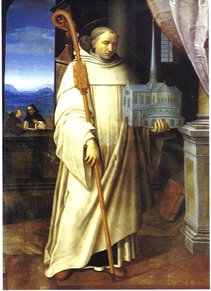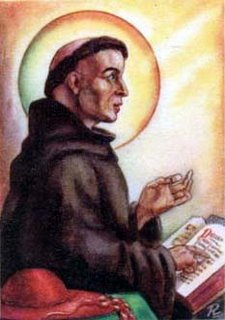June 29

PETER, formerly called Simon, was a son of Jonas, of Bethsaida, in
Galilee, and It brother of Andrew, by whom he was brought to Christ,
Who at once changed his name and called him Peter. When, soon after,
Jesus said to both of them on the Sea of Tiberias, “Follow Me, and
I will make you fishers of men,” they both left their nets and
followed Him. From this time forward Jesus was constantly giving him
particular proofs of His love. From the ship of Peter He taught the
thronging multitude, and to him He promised that on him; as upon a
rock, He would build His Church, against which the gates of hell
should not prevail. Our Lord took Peter with Him at the raising of
Jairus’ daughter from the dead; at His own transfiguration on Mount
Thabor; at the beginning of His passion in the Garden of Gethsemani.
To him He promised the keys of the kingdom of heaven; for him He
specially prayed that his faith might not fail; and him He commanded
to strengthen his brethren. After His resurrection He appeared
particularly to Peter, and three times commanded him to feed His
flock. But Peter had, above all the other apostles, made himself
worthy of this pre-eminence by his living faith, his humility, his
love, and his zeal for the honor of Jesus; for he it was who, before
the other apostles, made the confession, “Thou art Christ, the Son
of the living God.” He showed his humility when, at the miraculous
draught of fishes, he said, “Depart from me, for I am a sinful man,
O Lord.” Out of love he desired to remain always with Christ on
Mount Thabor to prevent Him from suffering; and out of love he
declared himself ready with Christ to live or die; nay, he even
declared most confidently that, though all should be scandalized in
Christ, yet he would not be. When Jesus was taken prisoner, Peter
showed himself to be most courageous by cutting off the ear of one of
his Master’s enemies, and by following Him to the house of Caiphas.
Three times, indeed, did he, as no one else did, deny his Lord out of
fear; but the look of forgiving love which Jesus cast upon him forced
from him tears of the deepest contrition, and three times afterwards,
accordingly, he made that coufession, “Lord, Thou knowest that I
love Thee.”
After he had received the Holy Ghost, full of courage, he
confessed Christ crucified, and preached Him in Pontus, Galatia,
Cappadocia, Ionia, and Bithynia. At Jerusalem he was once already
condemned to death, but was set free by an angel. In the year 54 he
went to Rome, whence, after a nine years’ residence, he was
banished, with many other Christians. Upon returning thither again he
was confined in the Mamertine prison, and finally, on June 29, in the
year A.D. 67, under the Emperor Nero, he was crucified; his head, by
his own desire, hung downwards, because he thought himself unworthy
to die like Christ.
PAUL, before his conversion called Saul, was of the tribe of
Benjamin, a native of Tarsus, in Cilicia, and a pupil of Gamaliel.
Full of zeal for the law, he bitterly opposed the Christians. As he
was travelling to Damascus to persecute them he was, on the way,
converted by Christ. How indefatigably he thenceforward worked in the
vineyard of the Lord, and what dangers and persecutions he underwent,
no pen can describe. It is almost incredible with what zeal and
perseverance he preached Christ, in chains and fetters, under blows
and scourges, in hunger and thirst, and untold times at the peril of
his life. And yet he was so humble that he counted himself the least
of the apostles, and always praised God that He had thought him
worthy to suffer for His name. After he had at last fought a good
fight, and finished his course – having everywhere zealously
preached the Gospel, and still more zealously practised it – he
received the crown of justice (II Timothy 4:6). The Emperor Nero
caused him to be beheaded on the same day tl1at Peter was crucified.
The Introit of the Mass is in the words spoken by Saint Peter
after his delivery from the prison at Jerusalem:
“Now I know in very deed that the Lord hath sent His
angel and hath delivered me out of the hands of Herod, and from all
the expectation of the people of the Jews.” (Acts 12:11)
“Lord, Thou hast proved me and known me; Thou hast
known my sitting down and my rising up.” (Psalms 138:1, 2)
Glory be to the Father, and to the Son, and to the Holy Ghost. As
it was in the beginning, is now, and ever shall be, world without
end. Amen.
Prayer
O God, Who hast consecrated this day by the martyrdom of Thy
apostles Saints Peter and Paul, grant to Thy Church, in all things,
to follow their doctrines, through whom the true faith was first
proclaimed. Through Christ our Lord, Amen.
Epistle: Acts 12:1-11

In those days: Herod the king stretched forth his hands, to
affiict some of the Church. And he killed James the brother of John
with the sword. And seeing that it pleased the Jews, he proceeded to
take up Peter also. Now it was in the days of the Azymes. And when he
had apprehended him, he cast him into prison, delivering him to four
files of soldiers to be kept, intending after the Pasch to bring him
forth to the people. Peter therefore was kept in prison. But prayer
was made without ceasing by the Church unto God for him. And when
Herod would have brought him forth, the same night Peter was sleeping
between two soldiers, bound with two chains, and the keepers before
the door kept the prison. And behold, an angel of the Lord stood by
him, and a light shined in the room, and he striking Peter on the
side raised him up, saying: Arise quickly. And the chains fell off
from his hands. And the angel said to him: Gird thyself, and put on
thy sandals. And he did so. And he said to him: Cast thy garment
about thee, and follow me. And going out he followed him, and he knew
not that it was true which was done by the angel, but thought he saw
a vision. And passing through the first and the second ward, they
came to the iron gate that leadeth to the city, which of itself
opened to them. And going out, they passed on through one street, and
immediately the angel departed from him. And Peter coming to himself,
said: Now I know in very deed that the Lord hath sent His angel, and
hath delivered me out of the hand of Herod, and from all the
expectation of the people of the Jews.
Gospel: Matthew 16:13-19
At that time Jesus came into the quarters of Cesarea Philippi, and
He asked His disciples, saying: Who do men say that the Son of man
is? But they said: Some John the Baptist, and other some Elias, and
others Jeremias, or one of the prophets. Jesus saith to them; But who
do you say that I am? Simon Peter answered and said: Thou art Christ
the Son of the living God. And Jesus answering, said to him: Blessed
art thou, Simon Bar-Jona, because flesh and blood hath not revealed
it to thee, but My Father Who is in heaven. And I say to thee: That
thou art Peter; and upon this rock I will build My Church, and the
gates of hell shall not prevail against it. And I will give to thee
the keys of the kingdom of heaven. And whatsoever thou shalt bind
upon earth it shall be bound also in heaven, and whatsoever thou
shalt loose on earth, it shall be loosed also in heaven.
-
Why
did Christ ask His disciples, “Who do men say that the Son of man
is?”
- To
give them an opportunity to confess their belief in Him as the true
Son of God, and upon that open confession to ground a promise of the
highest importance.
-
Why
does Christ call Himself the Son of man?
- In
order that, His Godhead being veiled under the form of man, He might
thus test the faith of His disciples, and teach us that He was both
true God and true man.
-
What
did Peter mean to say by those words, “Thou art Christ, the Son of
the living God”?
- He
thereby confesses that Christ is the Son of God, begotten from all
eternity, and therefore of the same substance with the Father; that
by Him all things were made, and that from Him comes our life in
soul and body.
-
What
reward did Peter receive for his confession?
- Christ
pronounced him blessed that God had given him such grace, conveyed
to him the highest authority in His Church, and gave him the
pre-eminence above all the apostles.
-
What
is the meaning of the expression “to bind and to loose”?
- According
to Isaias, it signifies to open and to shut heaven, and here
consequently denotes the power, as representative of Jesus Christ,
to receive persons into the Church, and to excommunicate them from
it; to forgive sins, or to retain them; to impose or to remit
punishments for them; to establish laws and prohibitions, to abolish
them, to change them, and, in general, to govern and direct in
everything, as shall be necessary for the preservation of unity and
order in the Church, and for the good of the faithful.
-
Was
the power to bind and to loose given to Peter only?
- No,
but to the rest of the apostles also; the power of the keys,
however, Jesus gave only to Peter.
Peter, therefore, and his
successors, possess this supreme power, while the other apostles and
their successors, the bishops, possess the authority intrusted to
them by Christ, to be exercised by them in unity with the rock, that
is, with Peter and his successors.
OF
THE POPE
What
is the Pope to the Catholic?
The
represeutative of Jesus Christ, and the visible head, appoiuted by
Him, for the government of His Church.
- Did
Christ actually appoint such a supreme head?
- Yes,
and that in the person of Saint Peter.
He gave him the
significant name Peter – the rock, distingllished him always above
the other apostles, and laid upon him the charge to feed His lambs,
that is, the faithful, and His sheep, that is, the bishops
themselves; and this power Peter uniformly exercised.
-
Why
did Christ appoint a visible head for the Church?
- Because
the Church is an outward, visible society, united together not only
by inward faith in Christ, but also by outward, visible signs.
Such
a visible head is as necessary for the Church as for a body, a
family, a society, a state, to prevent disunion, confusion, and the
consequent destruction of the whole; this supreme head is the centre
of the whole, the final judge, the authoritative teacher.
-
Who
is now this supreme head?
- The
Bishop of Rome, or the Pope. It is undeniable that Peter occupied
the bishop’s see at Rome, and that he died there. Equally
indisputable is it that the successor of Saint Peter entered upon
possession of his rights, and, together with the episcopal see of
Rome, inherited also the office possessed by him. From the first
centuries this has ever been acknowledged by the faithful, who have
accordingly called the Bishop of Rome Pope – that is, the father
of the faithful. And how clearly does history show that Peter and
his successors are the rock upon which the Lord has immovably
founded His Church! What storms have not broken upon the Church!
Persecutions from without and within, heresies and schisms without
number, and infidelity in its most hideous form, have raged against
the Church, and what has been the consequence? Nations have often
fallen away from the Church, single bishops have proved betrayers of
their flocks, the sees of the apostles themselves have been subject
to the vicissitudes of time. And amid all these storms Rome alone
has, for over eighteen hundred years, stood firm. She has come out
of every contest victorious, has remained the centre of faith and
discipline, and has preserved the unbroken succession of bishops
from Peter. Who does not see herein the assistance of Him Who
forever fulfils that promise of His, “Upon this rock I will build
My Church, and the gates I of hell shall not prevail against it”?
The Pope is, therefore, the visible supreme head of the Church,
appointed by Christ for all time; the invisible, all-governing head
is Christ Himself.
Prayer
O
Jesus Christ, Son of the living God, Who hast built Thy Church on
Saint Peter, as on a rock, Who hast confided to him the keys of the
kingdom of heaven, and constituted him and his successors Thy
representatives upon earth, grant us Thy grace, that in all the laws
we may obey them as Thyself, that, resting upon the rock of truth, we
may be immovable in all storms, and steadfastly persevere in the way
of good works.
--
Goffine’s Devout Instructions















